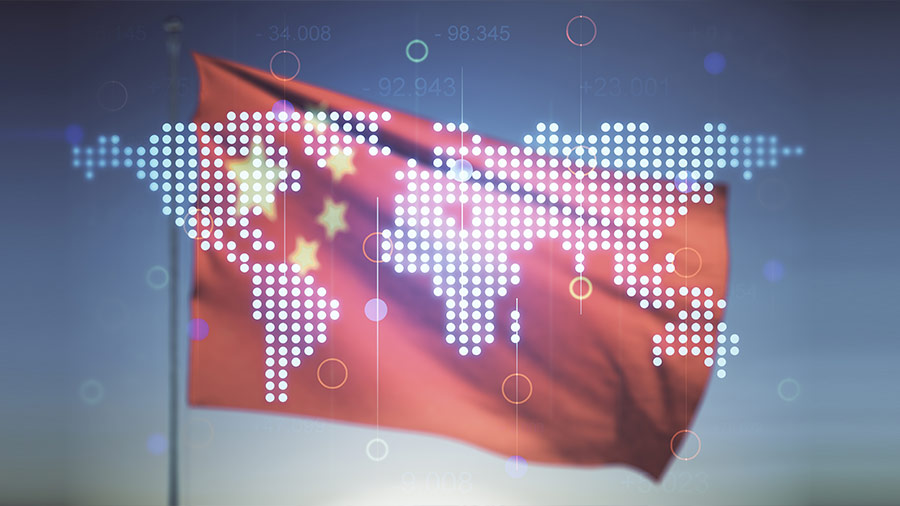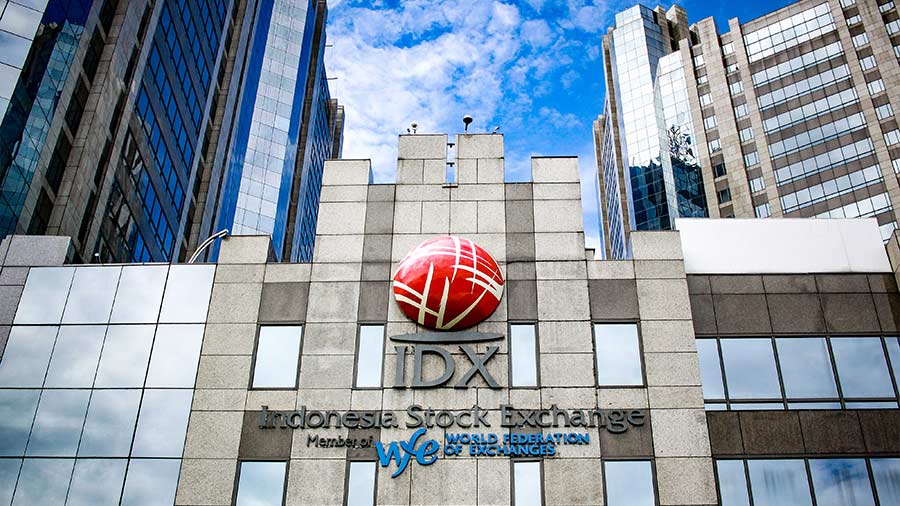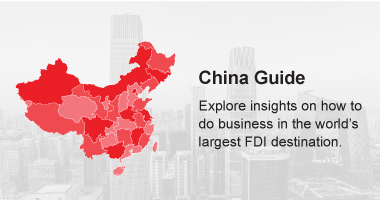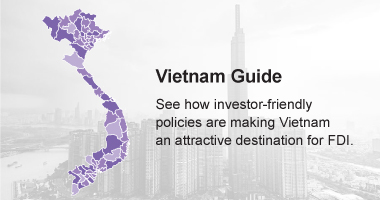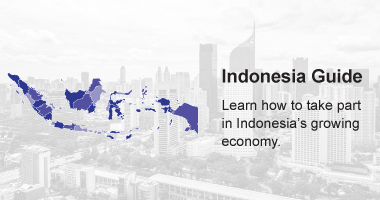China Briefing
Investing in the Future: Opportunities in China’s Humanoid Robotics and Embodied AI Industry
04/07/2025China's humanoid robot market is expected to become a multi-billion dollar industry within the next decade, presenting huge opportunities for investors in a variety of sectors.
Beijing Releases Negative List to Facilitate Data Export in Free Trade Zone
09/06/2024The Beijing FTZ has released its first data negative list outlining the types of data that must undergo export compliance procedures, providing much-needed clarity for companies.
New Data Security Risk Assessment Rules for Industry and Information Technology Sectors
06/13/2024New trial rules clarify data security risk assessments requirements for companies processing core and important data in the industrial and IT fields.
UPDATE: Finalized China Data Protection Measures for Industrial and Telecom Companies Released
12/29/2022China's MIIT released the final version of the Measures for Data Security Management in the Field of Industry and Information Technology after two rounds of public comments. The document will come into force on January 1, 2023.
The Low-Code/No-Code Industry in China: Opportunities for Foreign Investors
09/21/2022China’s low-code/no-code market is the fastest growing worldwide and projected to reach US$1.4 billion by 2024. We discuss the appeal for investors.
New Specifications for Cross-Border Processing of Personal Information for MNCs
05/11/2022We discuss the requirements for MNCs in China to engage in cross-border personal information processing.
“Eastern Data, Western Computing” - China’s Big Plan to Boost Data Center Computing Power Across Regions
03/30/2022China data centers will be further expanded in a new plan that seeks to improve efficiency and capacity by sending eastern data to western regions.
China’s Internet of Vehicles - New Guidelines Set Framework for Industry Standards
03/15/2022China's IoV industry will soon be subject to more data and cybersecurity standards. We examine the types of standards and technical requirements.
India Briefing
India's Semiconductor Sector: Tracking Government Support and Investment Trends
03/20/2025We track India's efforts to facilitate foreign investment into its indigenous semiconductor industry (developing fabs. chip design, ATMP).
Technology-Enabled Changes in the Audit Compliance Landscape in India
11/21/2023We discuss how emerging technologies hold the potential to transform the field of auditing by leveraging software-as-a-service platforms as well as incorporating artificial intelligence, automation, drones, and more. Moreover, India's corporate affairs authority mandates the adoption of specific software-enabled tracking, such as audit trails.
Digital India Bill 2023: Key Provisions, Stakeholder Perspectives
07/03/2023We discuss the key provisions of the Digital India Bill 2023, set to replace India's existing Information Technology Act of 2000, and the concerns of industry stakeholders. Various media reports indicate the Bill will soon be circulated for public feedback.
Google Loses Bid to Block Indian Android Antitrust Ruling, Assures Cooperation with CCI
02/14/2023India’s antitrust regulator CCI has levied a $161 million fine on Google and ordered it to lift restrictions on device manufacturers like pre-installation of Google apps.
RBI Extends Deadline for Implementation of Card Tokenization Till Sept 30, 2022
08/05/2022By September 30, 2022, digital payments compliance in India will require mandatory deletion of card-on-file details, thereby opening space for fintech disruptors.
Why Are Industry Players Unhappy with India’s New Cybersecurity Directives?
07/01/2022Among other concerns, India’s new cybersecurity directives, in effect from June 2022, challenge norms of user privacy and dramatically increase compliances.
What Trends are Driving the Fintech Revolution in India?
06/09/2022We discuss major trends shaping the future of Fintech in India and break down how the Fintech market is evolving in key service and technology segments.
Profiling India's EdTech Industry: A Multi Billion Dollar Opportunity
06/09/2022We profile the latest trends in the Indian Edtech industry whose valuation is pegged at US$30 billion by 2032. India has 5 Edtech unicorns as of Jan. 2022.
Vietnam Briefing
Special Mechanisms to Drive Science and Technology Advancement in Vietnam: Opportunities for Businesses and Investors
03/19/2025Vietnam is introducing special mechanisms to drive innovation and digital transformation, creating new opportunities for businesses and investors through improved infrastructure, regulatory reforms, and talent attraction. These changes position Vietnam as a growing hub for technology and R&D, with significant growth potential in the coming years.
Vietnam’s First Draft of New Personal Data Protection Law (PDPL) Released for Public Comments
09/26/2024On September 24, 2024, the Vietnamese government issued the first draft of a new Law on Personal Data Protection (PDPL) for public feedback. The draft law has more stringent provisions than the Personal Data Protection Decree and is potentially set to take effect from January 1, 2026.
8 Regulations and Policies Supporting Startups in Vietnam
02/13/2023Vietnam's startup sector benefits from a myriad of supportive policies and regulations. Here’s eight of them.
Investing in Vietnamese Startups: Quick Guide 2023
02/03/2023Vietnam’s startup sector is booming. Here’s a quick overview of how the sector is developing.
Vietnam Tasks Government Agencies to Prepare Legal Framework for Cryptocurrencies, Virtual Assets
04/11/2022Vietnam's Deputy PM has asked the relevant government agencies to develop a legal framework for cryptocurrencies and virtual assets.
What Are Digital Signatures and What Businesses Need to Know
01/14/2022Vietnam Briefing looks at the concept of digital and e-signatures in Vietnam and businesses need to know when using them to complete contracts.
COVID-19: Transitioning Your Business for Remote Work in Vietnam
09/13/2021Vietnam Briefing offers practical advice on how businesses can mitigate the disruption to their work and operations by using remote tools.
Vietnam's New Incentives for Science and Technology Firms
02/15/2019The government has announced new incentives such as corporate tax cuts and exemptions, and credit incentives for science and technology enterprises. Read more to know about government support and incentives which aims to promote scientific and technologic
ASEAN Briefing
Why Singapore is a Hub for Tech Startups
08/11/2024Singapore's dynamic ecosystem, combining government support, strategic location, top-tier infrastructure, and a skilled workforce, makes it an unparalleled hub for tech startups to thrive globally.
AWS's US$9B Infusion Boosts Singapore's Cloud Hub Status
07/22/2024AWS's US$9 billion investment in Singapore’s cloud infrastructure enhances the nation’s status as a leading global cloud hub and opens new opportunities for foreign investors.
Singapore Cybersecurity Draft Amendment Bill: Public Consultation Ends Jan. 15
01/10/2024The Cyber Security Agency (CSA) of Singapore is seeking views on the draft Cybersecurity (Amendment) Bill until January 15, 2024. We list key threats that are being addressed by the Bill.
Thailand and Hong Kong Launch Cross-Border QR Payments
12/05/2023Thailand’s central bank and the Hong Kong Monetary Authority launched a new cross-border QR payment links.
Catalyzing Connections: Australia's Path to Amplify Digital Trade in Southeast Asia
11/16/2023Australia launched its latest Digital Economy Strategy with a focus on leveraging digital technologies and enhancing digital trade, particularly with Southeast Asia.
Indonesia's Social Media E-Commerce Ban: Navigating Regulatory Changes
11/14/2023Indonesia's ban on social media e-commerce transactions will significantly affect key players such as TikTok and their business development.
Indonesia Allows Stock Market Multiple Voting Rights to Lure Tech Listings
08/26/2022Indonesia’s OJK Regulation No. 22/2021 allows tech companies to have multiple voting rights when they conduct an IPO in the country's stock exchange.
How to Get a Cybersecurity License in Singapore
06/21/2022Cybersecurity vendors in Singapore must apply for a license if they provide certain types of services. We answer FAQs including eligibility for fee reduction.
 Our firm Dezan Shira & Associates provides legal, tax and operational advisory across Asia.
Our firm Dezan Shira & Associates provides legal, tax and operational advisory across Asia. 






